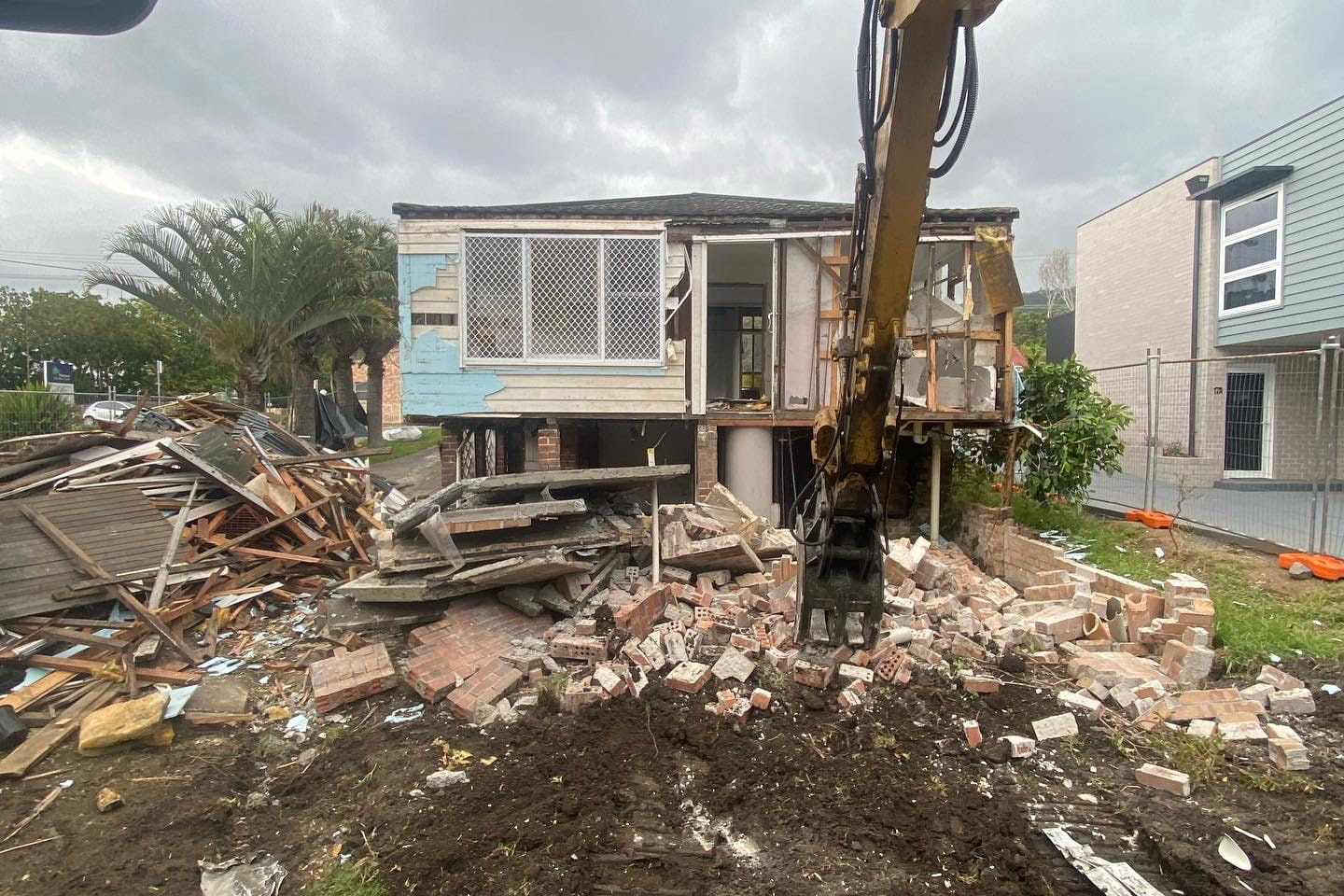Are you considering getting rid of your swimming pool in New South Wales? Whether it’s due to high maintenance costs, underuse, or a desire to reclaim backyard space, removing a pool is a significant decision. But the question most homeowners ask is: “How much does it cost to remove a pool in NSW?” This comprehensive guide dives deep into the costs, procedures, and considerations involved, tailored specifically to NSW regulations and market standards.
From understanding the demolition process to evaluating the costs involved in Newcastle and surrounding areas, we’ll walk you through every detail. We’ll also answer frequently asked questions about residential demolition in NSW, including permits, methods, and choosing the right contractors.
How Much Does It Cost to Remove a Pool in NSW?
The average cost to remove a swimming pool in NSW typically ranges from $5,000 to $20,000, depending on several key factors. These include the type of pool, accessibility of the site, method of removal, and whether you choose a partial or complete removal.
- Partial Pool Removal: This involves breaking the pool shell, removing the top portion, and filling it in. It is more cost-effective, usually costing between $5,000 to $10,000.
- Full Pool Removal: The entire structure is removed, followed by backfilling and compacting. This can cost between $10,000 to $20,000 or more.
Factors Influencing Cost
- Pool Size & Type: In-ground concrete pools cost more to remove than fiberglass or above-ground options.
- Site Access: Limited access for machinery can increase labor and equipment costs.
- Permit Fees: Local council permits and inspections can add several hundred to a few thousand dollars.
- Waste Disposal: Transporting and disposing of concrete, tiles, and soil can be expensive.
- Soil Testing & Compaction: Required for future development, adding to total cost.
If you’re located in Newcastle or nearby regions, expect to pay on the higher end of the scale due to stricter compliance and potential landfill fees.
What Is the Demolition Process for a Pool?

The demolition process for a swimming pool involves several steps and must adhere to NSW regulations. Here’s an overview:
- Site Inspection and Assessment: A licensed contractor evaluates the pool size, material, and accessibility.
- Approval and Permits: Depending on your local council, you may need approval under the NSW Environmental Planning and Assessment Act.
- Drainage: The pool is safely drained, and any hazardous materials are identified and removed.
- Demolition: Using excavators and jackhammers, the pool is either partially or fully demolished.
- Debris Removal: Concrete and tiles are loaded and removed for recycling or landfill.
- Backfilling and Compaction: The site is filled with clean fill and compacted to ensure soil stability.
- Final Inspection: An engineer may assess the site for future construction eligibility.
How Much Does Demolition Cost in NSW?
Demolition costs in NSW range broadly depending on the structure type, location, and complexity of the job. For residential demolition, average costs fall between $15,000 and $40,000. This includes demolition of houses, garages, sheds, and swimming pools.
In areas like Newcastle, demolition costs may be higher due to limited access, heritage overlays, and additional compliance requirements.
Residential Demolition in Newcastle: What You Should Know
Newcastle is home to both older and modern structures, each with unique challenges during demolition. Residential demolition in Newcastle typically costs $18,000 to $35,000, depending on structure size and site accessibility.
Contractors like Watson Demolition and others offer competitive rates, but it’s crucial to choose a provider experienced with local council regulations, asbestos handling, and waste disposal standards.
Do You Need Permission for Demolition in NSW?
Yes, in most cases, you need a Development Application (DA) or Complying Development Certificate (CDC) for demolition in NSW. If your property is heritage-listed or within a conservation zone, extra permissions may be required.
For swimming pool removal, permits are usually needed, especially if soil disturbance is involved. Consulting your local council is recommended before starting any demolition project.
Can You Demolish Your Own House or Pool in NSW?
Technically, yes, but with significant restrictions. Homeowners can undertake minor demolitions, but full-scale demolition or pool removal requires licensing and certification, especially when dealing with machinery, asbestos, or large waste volumes.
DIY demolition is strongly discouraged unless you have construction experience, necessary certifications, and compliance with SafeWork NSW guidelines.
Why Was Hexham House Demolished?
Hexham House, located in Newcastle, was demolished due to structural issues, development pressures, and heritage disputes. While the decision was controversial, it reflects the broader trend of balancing heritage conservation with urban renewal.
What Is the Cheapest Way to Demolish a Pool?
The cheapest method is partial removal—crushing the top layers, filling the shell, and compacting the soil. However, while it reduces costs, it may affect property resale and future construction approvals.
If long-term plans include building over the site, a full removal is a more viable option despite higher initial costs.
Popular Demolition Services in Newcastle
Several reputable companies operate in Newcastle, offering a wide range of services including:
- Lakeside Demolition
- Watson Demolition
- Hunter Valley Group
- Husky Demolition
When selecting a demolition contractor, ensure they are licensed, insured, and have positive reviews. Check previous Watson Demolition Newcastle photos and customer reviews to gauge service quality.
What Are the Best Methods of Demolition?
Demolition methods vary depending on the structure and goals. The three main types of demolition include:
- Manual Demolition – For small structures or parts of a building. Labor-intensive and time-consuming.
- Mechanical Demolition – Using heavy machinery like excavators and bulldozers. Ideal for most residential demolitions.
- Implosion (Explosive Demolition) – Used for large commercial buildings. Rarely used in residential areas.
For pool removal in NSW, mechanical demolition is most common.
What Services Are Offered by a Demolition Company?
A standard demolition company provides:
- Site inspection and cost estimation
- Permit assistance
- Structure or pool demolition
- Debris removal and recycling
- Soil testing and compaction
- Asbestos removal (if necessary)
- Final site grading and clean-up
Look for the best demolition Newcastle NSW providers for reliable services.
FAQs About Pool and House Demolition in NSW
How much does it cost to demolish a house in Newcastle?
Demolishing a house in Newcastle can range from $18,000 to $40,000, influenced by size, access, asbestos presence, and site conditions. A pool removal may cost less, starting around $5,000, but complex removals can match house demolition pricing.
Can I demolish my own house in NSW?
Only under strict conditions. For full demolitions, including swimming pools, NSW law requires licenced contractors, especially if the structure involves asbestos or exceeds a certain size. DIY is generally discouraged.
Do I need permission to remove a pool in NSW?
Yes, most councils require a Complying Development Certificate (CDC) or DA approval for pool removal due to site disruption, waste removal, and safety considerations.
What is the demolition process for residential areas?
It involves planning, securing approvals, disconnecting utilities, structural demolition, waste removal, and site remediation. Reputable companies like Watson Demolition follow structured and compliant procedures.
Is pool removal covered by insurance in NSW?
Usually not. Pool removal is considered a planned renovation, not a damage-related repair. Always check with your insurer.
What’s better: full or partial pool removal?
Full removal is better for property value and future use, while partial removal is more cost-effective in the short term. Your decision should consider future development plans.
How do I find the best demolition company in Newcastle?
Look for licenced operators with experience, positive reviews, and transparent pricing. Watson Site Services, Hunter Valley Group, and Lakeside Demolition are well-known in the region.
Conclusion
Removing a pool in NSW, particularly in Newcastle and surrounding regions, is a considerable undertaking that requires planning, budgeting, and professional help. Whether you’re removing a pool to reclaim space, lower maintenance costs, or prepare for future development, it’s crucial to understand the demolition process, cost implications, and regulatory requirements.
For a smooth and compliant demolition experience, trust experienced professionals like those at TYR Demolition to handle your project with care and efficiency.
Ready to remove your pool or start a demolition project in Newcastle? Contact TYR Demolition for expert advice, site inspections, and competitive quotes.
